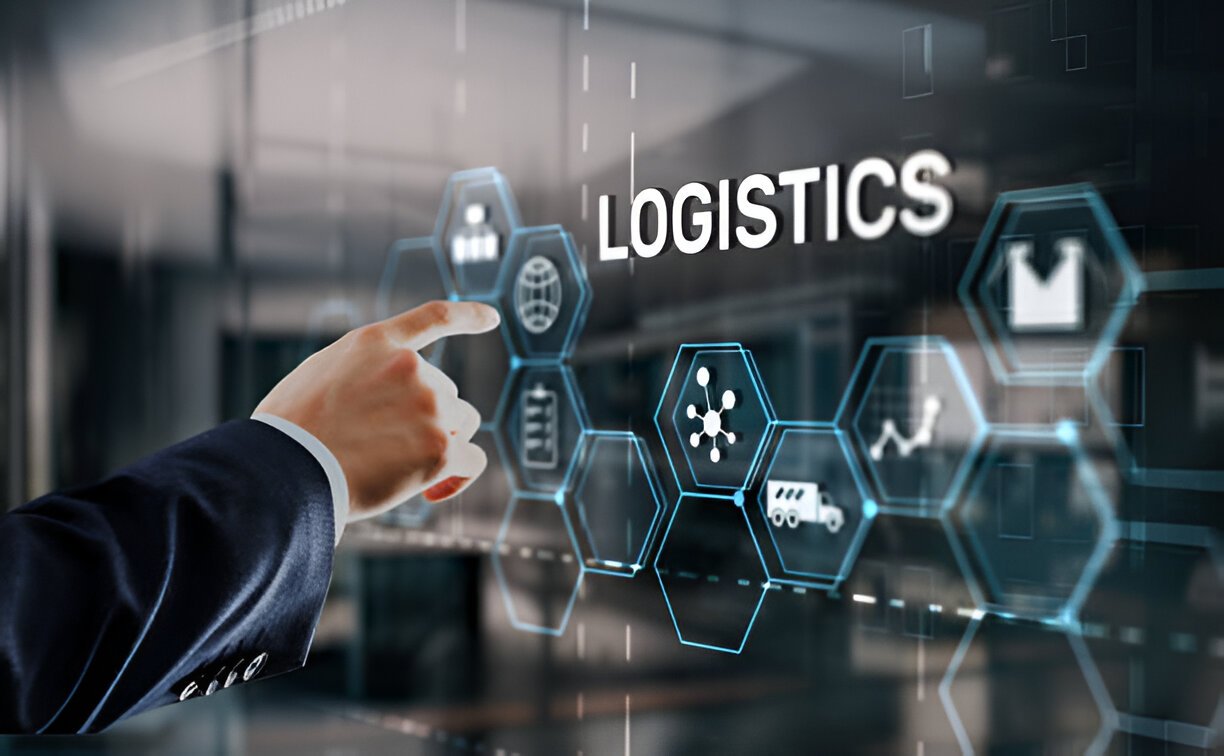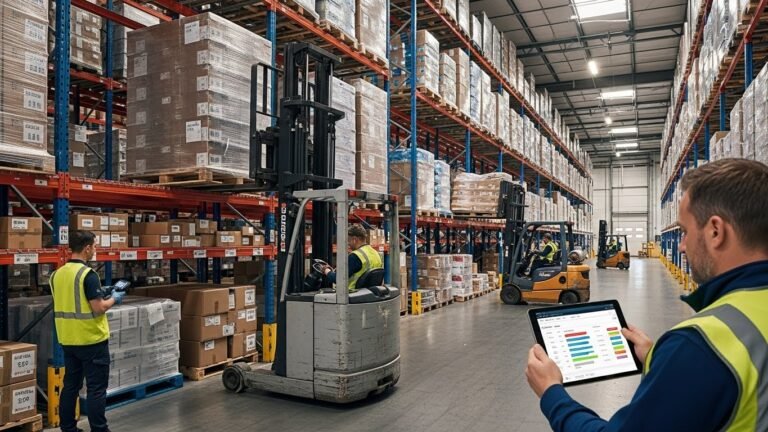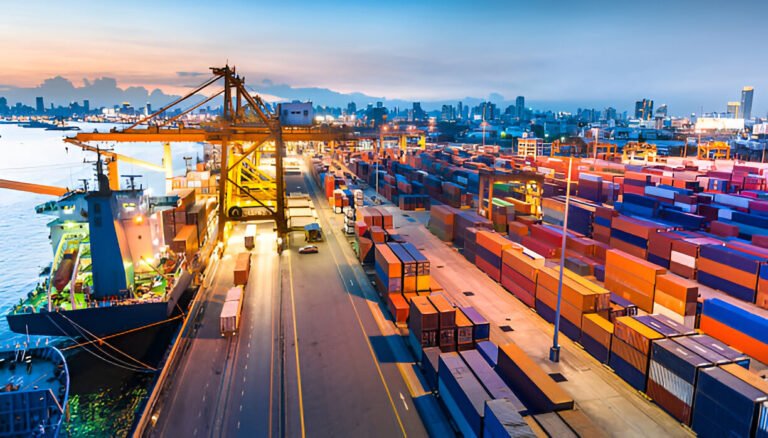In today’s hyper-connected world, businesses must deliver faster, smarter, and adapt to the ever-changing global market. The supply chain, as the backbone of countless industries, is no exception. Enter Artificial Intelligence (the game changer) that is rewriting the rules of supply chain operations. From predicting demand with remarkable precision to determining optimal routes in real time, AI is doing more than improving efficiency; it is transforming supply chain management into a dynamic, predictive, and resilient powerhouse.
Before starting have a glance at these Recent Statistics Highlighting AI’s Impact on Supply Chain Management:
Recent Statistics
- According to McKinsey’s 2024 report, companies implementing AI-driven demand forecasting have reduced errors by up to 50%.
- A 2024 study by Gartner found that AI-based inventory management solutions can lower holding costs by 20-30%, optimizing stock levels and reducing waste.
- Research by the World Economic Forum in 2024 highlighted that AI-optimized logistics can reduce carbon emissions by up to 15%, contributing to more sustainable supply chain practices.
- A recent 2024 Deloitte survey found that 55% of industrial product manufacturers are actively using Generative AI in their operations, while more than 40% intend to boost their investments in AI and machine learning.
So, let us look at how this exciting tool of AI is being applied in this essential line of business.
Enhanced Demand Forecasting
You know how irritating it can be when a certain product is out of stock at the exact time you need it. AI comes into play here by providing accurate predictions of demand. Using historical data in a related field, as well as market data, social indicators, and external data sources, algorithms can predict future demand with remarkable accuracy. This means fewer stockouts, less stagnant inventory, and happier customers in the picture.
Demand forecasting powered by artificial intelligence utilizes machine learning algorithms that constantly adapt to new data. For example, consider Walmart, a leading retail store, and how they use AI to forecast customer demand during Black Friday.
By executing a sales forecast based on the previous years’ sales records, current trends, and even social media trends on popular products, Walmart ensures its shelves are stocked with the most sought-after items while avoiding the overstocking of less popular products. Consequently, this enhances customer satisfaction and improves efficiency in inventory costs.
Furthermore, AI can incorporate additional factors that might be overlooked in more conventional approaches. For instance, consumers’ buying behavior is influenced to some extent by prevailing weather conditions. A specific change in weather can create demand for products suited to the corresponding conditions. For example, a cold wave may lead to increased demand for heaters, while a projection of hot weather may boost demand for air conditioners or cold drinks. With such data integrated, AI provides comprehensive and precise demand insights.
Improved Inventory Management
I thought it was like managing inventory — juggling flaming torches. AI keeps the heat off by automating stock levels as well as reordering processes. Sales patterns are analyzed by machine learning algorithms, and the best inventory levels are predicted so that you always have the right products at the right time. Say goodbye to overstocked warehouses and hello to streamlined operations.
For example, Amazon uses AI to keep track of the millions of different items it has sitting in warehouses around the world. If they can predict which products are going to be in demand in specific regions, Amazon can pre-position inventory closer to customers, which in turn mitigates their delivery times and logistics costs. “Predictive shipping” is the coined name for this approach, which has changed the game for the e-commerce industry, making service faster and more efficient.
Some systems also contain AI that enables them to identify slow-moving stock and offer solutions on how to get rid of it. For example, this might entail targeted promotions or bundling products to make them more attractive. These systems also help flag possible stockouts before they happen, enabling timely reorders and ensuring the most prolific products are always on hand.
Logistics and Transportation, Optimized
Did you ever wonder how your package is delivered so quickly? Route optimization relies largely on AI. AI can optimize transportation routes that results in faster deliveries, reduced fuel consumption, and lower carbon emissions.
For example, UPS uses its ORION system (On-Road Integrated Optimization and Navigation). AI in ORION evaluates millions of data points related to package details, delivery addresses, and real-time traffic information to optimize delivery routes. By saving miles and reducing fuel consumption, this system saves drivers time, reduces costs for UPS, and decreases the environmental impact of their service.
AI can also enhance last-mile delivery, which is the most complicated and expensive part of any logistics process. AI predicts the most efficient routes and schedules deliveries so customers are satisfied, and packages are delivered faster and more efficiently. Additionally, AI’s predictive capabilities help manage fleet maintenance by identifying when vehicles need servicing. This reduces downtime and avoids costly implications in terms of time and money.
Improved Internet Accessibility
Having a good relationship with suppliers is very important for a smoother supply chain. Monitoring supplier performance, identifying potential risks, and suggesting alternate suppliers are some of the capabilities of AI-powered systems. By taking this proactive approach, you maintain the resiliency of your supply chain even in the unfortunate event of a disruption.
For instance, automotive manufacturers use AI today to manage a huge network of suppliers. It analyzes supplier performance data, quality issues, and delivery times so manufacturers can identify risks and address problems before they impact production.
Suppose you have a supplier who consistently misses deadlines or delivers subpar components; with AI, you can recommend replacement suppliers that meet the set standards.
AI fosters stronger collaboration with suppliers by offering instant access to up-to-date data and actionable insights. This transparency builds trust and empowers stakeholders to make well-informed decisions. For instance, AI-generated forecasts allow suppliers to optimize their production plans, aligning output with demand more effectively. This cooperative strategy benefits all involved parties and reinforces the overall resilience and efficiency of the supply chain.
Predictive Maintenance
The worst can happen, and operations can come to a grinding halt due to equipment breakdowns. With the help of AI, this is prevented: the prediction that maintenance is needed can be made. AI uses sensors and data analysis to detect wear and tear before it becomes critical. This results in less downtime, cheaper maintenance costs, and overall better, more reliable equipment.
For example, Rolls-Royce uses AI to monitor its aircraft engines in real time. AI analyzes data from sensors embedded in the engines and identifies anomalies that suggest potential future problems. This allows maintenance teams to address issues before they escalate, enabling the engines to run smoothly and reducing the possibility of costly downtime.
AI-driven predictive maintenance can also extend the life of equipment. Early identification and remediation of issues in manufacturing assets keep them in working condition for as long as possible, thereby reducing overall maintenance costs. This proactive approach not only boosts operational efficiency but also supports sustainability by minimizing waste.
Sustainability and Environmental Impact
Sustainability has long ceased to be a buzzword; it’s now an essential part of doing good. In its simplest form, AI helps businesses minimize their environmental impact by streamlining operations and reducing waste.
For example, AI can make better use of materials or plan routes that use less fuel. Not only does this benefit the planet, but it also enhances your brand’s reputation.
Consider how AI is used by logistics companies to create more sustainable practices. Through data analysis of transportation routes, fuel consumption, and delivery schedules, AI can identify opportunities to reduce emissions and improve efficiency. For instance, AI might recommend merging several deliveries into a single trip or utilizing electric vehicles for shorter routes.
Additionally, AI can help companies achieve their sustainability goals by pinpointing areas for improvement. For example, a manufacturer could use AI to analyze its production process, identifying ways to reduce energy consumption or minimize waste. AI enables companies to continuously monitor and optimize these processes, helping them make a more significant green impact.
Navigating Risks in a Global Supply Chain
In our interconnected world, supply chains are constantly exposed to various risks. Thankfully, AI offers a powerful tool to navigate these challenges by providing real-time insights and predictive analytics. Whether it’s natural disasters, political upheavals, or market fluctuations, AI can identify potential threats and suggest backup plans, keeping your supply chain robust and adaptive.
During the COVID-19 pandemic, AI proved to be a vital ally during these times. By analyzing data on infection rates, government regulations, and supplier hiccups, AI helped companies pinpoint weak spots in their supply chains. This enabled swift strategy adjustments, like finding new suppliers or rerouting shipments to avoid affected areas.
AI also helps companies stay ahead by predicting when emergency measures might be needed. For instance, an AI system might notice that a supplier is consistently late due to production issues. Early detection of such risks gives businesses ample time to respond, whether that means sourcing from alternative suppliers or collaborating with existing ones to resolve the underlying problems.
Enhanced Customer Service
It frees up human customer service workers so that they can enjoy more meaningful work. With powered chatbots, like AI, the AI can respond to and manage customer queries around the clock. Not only will your customer be happy with the solution, but it will also allow your human agents to take care of more difficult issues.
For example, companies use AI-powered chatbots to help customers, like Amazon. From simply tracking orders or product recommendations, chatbots like these can go a long way before you realize it. These chatbots, using natural language processing (NLP) algorithms, answer customer queries accurately and make the customer experience smooth and fulfilling.
With that, AI can also personalize the customer experience by analyzing what customers prefer and how they prefer to do it. For instance, an AI system can recommend products for a customer based on what they’ve purchased or browsed before. The amount of personalization that this level achieves in terms of how they treat your customer will enable the customer to feel satisfied with the experience and will increase the likelihood that the customer will return for repeat business.
Continuous Improvement
The AI’s implementation in supply chain management does not conclude with that. AI systems also keep learning and getting better from additional data and better algorithms. It helps your supply chain stay current with what is happening in the market.
Such an AI system, used in predictive maintenance, can learn from each maintenance event to improve the accuracy of future predictions. Like with actual sales data, AI-driven demand forecasting models can adjust their predictions over time to become more accurate.
By going through this process, companies continuously learn and remain agile and responsive to ever-changing conditions in the market. Businesses can continue to differentiate themselves and respond to new challenges and opportunities by continuously optimizing their supply chain processes.
Final Thoughts
Supply chain management is not just evolving with AI, but it’s actually being revolutionized. With AI integration, there is efficiency, resilience, and sustainability at new heights. Moving forward, as new technologies continue to grow, the future of supply chain management has never looked brighter. Businesses incorporated with AI will not only be ahead of the competition but will also help in the development of a more sustainable and more efficient global supply chain.
So, there you have it! It’s undeniable that AI’s transformative power in supply chain management is changing the industry, from predictive analytics to optimized logistics and enhanced sustainability, in ways we only imagined a few years ago. Now that we’re moving forward, it’s exciting to imagine where AI can take our supply chain across the world.
How does AI improve supply chain management decision-making?
Advanced data analytics and machine learning make up AI, which uses them to deliver actionable insights to make better decisions. AI analyzes patterns in historical and real-time data to enable the prediction of demand, optimize inventory levels, and optimize logistics to reduce costs and improve efficiency.
Is AI able to boost supply chain resilience?
AI, for sure, makes us more resilient by predicting disruptions, analyzing risks, and providing alternative solutions. For example, it can tell you if you have any supplier vulnerabilities and recommend better supplier options to make it easier for your operations to work smoothly.
Which industries are the most significant beneficiaries of AI in supply chain management?
AI is helping industries such as e-commerce, manufacturing, and retail tremendously. It helps optimize warehouse operations, and delivery routes, and forecast demand, helping save costs and increase customer satisfaction.

We have been offering extensive and well-planned pieces of training in the field of economics, supply chain, and operations management. Our core purpose is to help industry professionals and businesses to succeed in an ever-evolving competency in the jobs market. Our cutting-edge training methods and up-to-date knowledge aligned with the latest industry trends and demands put our candidates in the lead amongst other job seekers and competitors in the market.
- BRASI Editorial Team#molongui-disabled-linkSeptember 3, 2024
- BRASI Editorial Team#molongui-disabled-linkOctober 8, 2024
- BRASI Editorial Team#molongui-disabled-linkNovember 19, 2024








